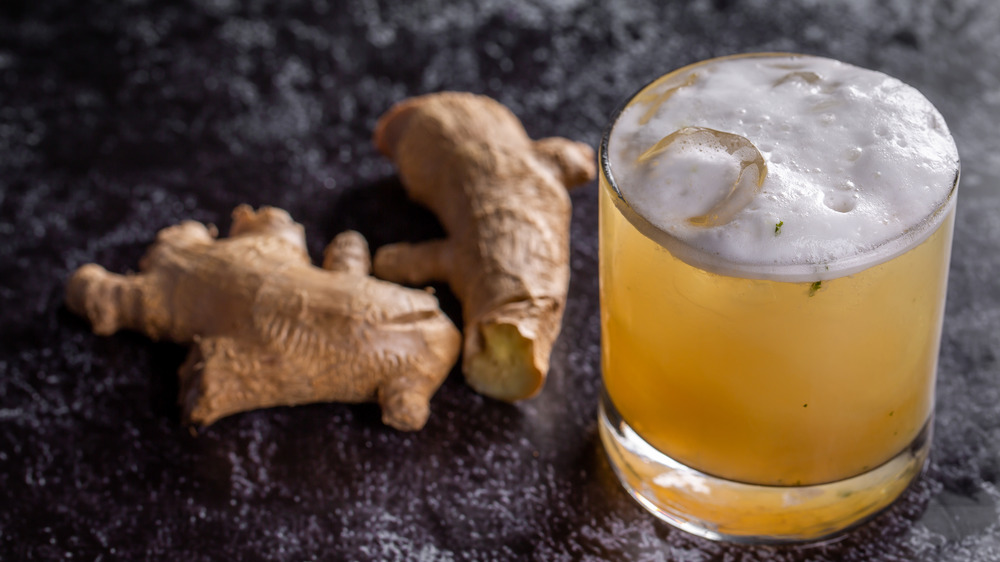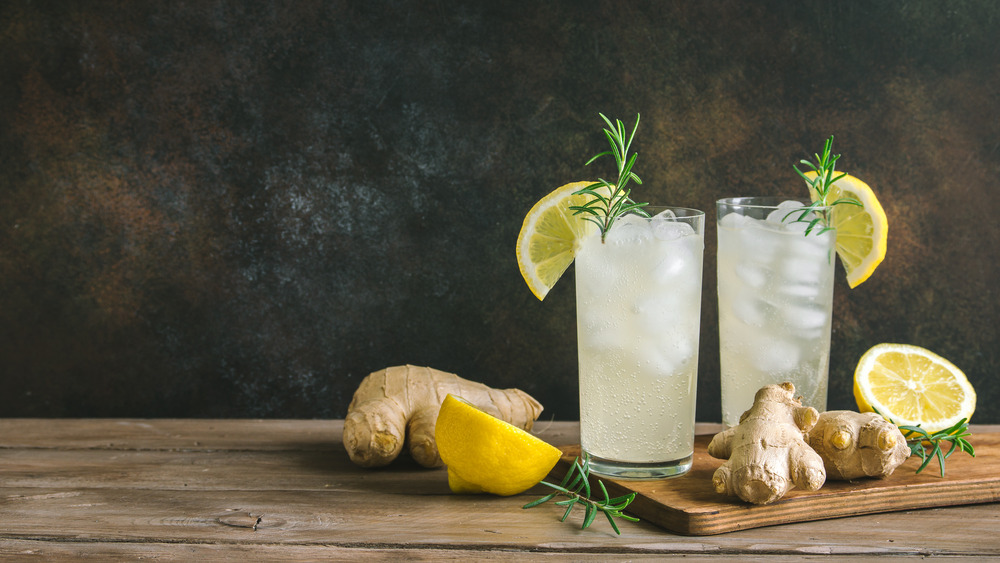What You Need To Know About Ginger Beer
You might be used to reaching for a glass of ginger ale when you have a stomachache or are combatting nausea. However, you might be less acquainted with ginger beer, unless your cocktail of choice is a Moscow Mule or Dark 'n' Stormy. Although ginger beer and ale are based on ginger root, they vary in flavor intensity and are produced differently. Most noticeably, ginger beer usually packs a spicy punch compared to the subtler taste of ginger ale, according to Kitchn.
Ginger ale is essentially just a soft drink made with ginger syrup flavoring and is produced on large scale (via Kitchn). Ginger beer on the other hand is often more of an artisanal product and requires the activity of yeast, explains Kitchn. The outlet notes that the name is not entirely misleading since it used to contain around 11 percent alcohol by volume when it was first introduced in England in the 1800s. During Prohibition, the English switched gears and started exporting non-alcoholic ginger beer to the U.S.
The Temper explains that the brew is produced by fermenting sugar, ginger, water, and a starter culture (much like kombucha) made up of yeast and bacteria called the ginger beer plant. Nowadays, some producers use champagne yeast or other commercial options, including forced carbonation, notes Kitchn. If yeast activity is present and the brew isn't entirely filtered, HuffPost describes ginger beer's appearance as cloudy and dark in comparison to ginger ale.
Does ginger beer contain alcohol, and is it healthy?
In cases where no fermentation occurs and carbonation is forced, there is zero alcohol content (via The Temper). However, for those ginger beers still made the traditional way, alcohol levels hover around 0.5 percent and are technically classified by the FDA as non-alcoholic, according to Advanced Mixology. While the alcohol level is indeed barely noticeable, if at all, it is important to keep in mind that many ginger beers on the market are fermented beverages. An alcohol level of 0.5 percent might not be appropriate for everyone, for example recovering alcoholics, a writer for Vice remarked.
Livestrong points out that the beverage does contain some of the beneficial qualities of ginger, such as improved digestion and reduced inflammation. However, the outlet says that unless you are making it yourself and carefully monitoring the levels, ginger beer undoubtedly contains a fair bit of sugar. If you want to make your own brew to ensure beneficial probiotic activity in your ginger beer, Atitlan Organics provides instructions.
If you haven't tried ginger beer yet and enjoy the flavor of the root, then you should definitely add it to a cocktail or mocktail for a fiery twist. Even better, brew your own so you can keep the sugar low and actually benefit from the characteristics of ginger!

